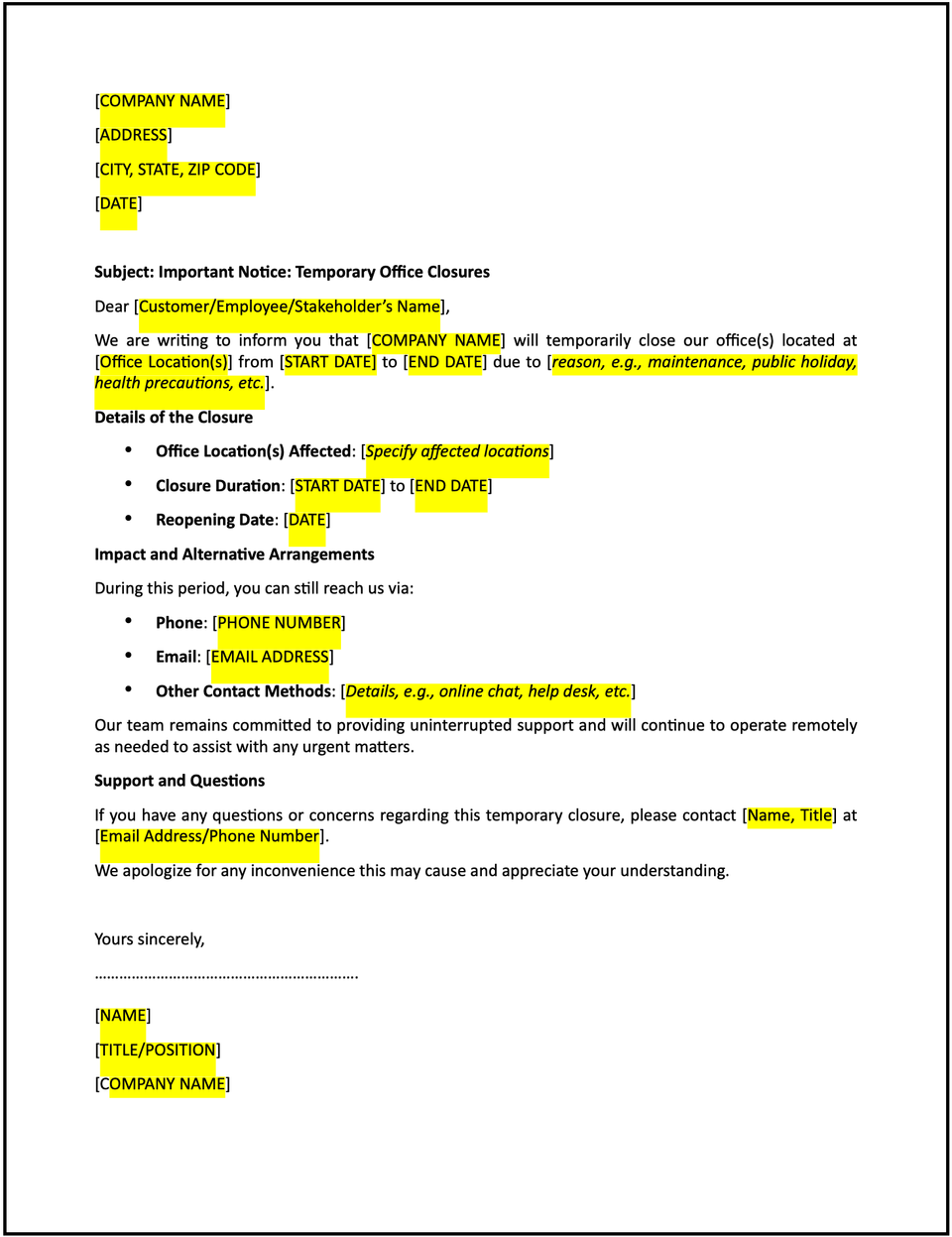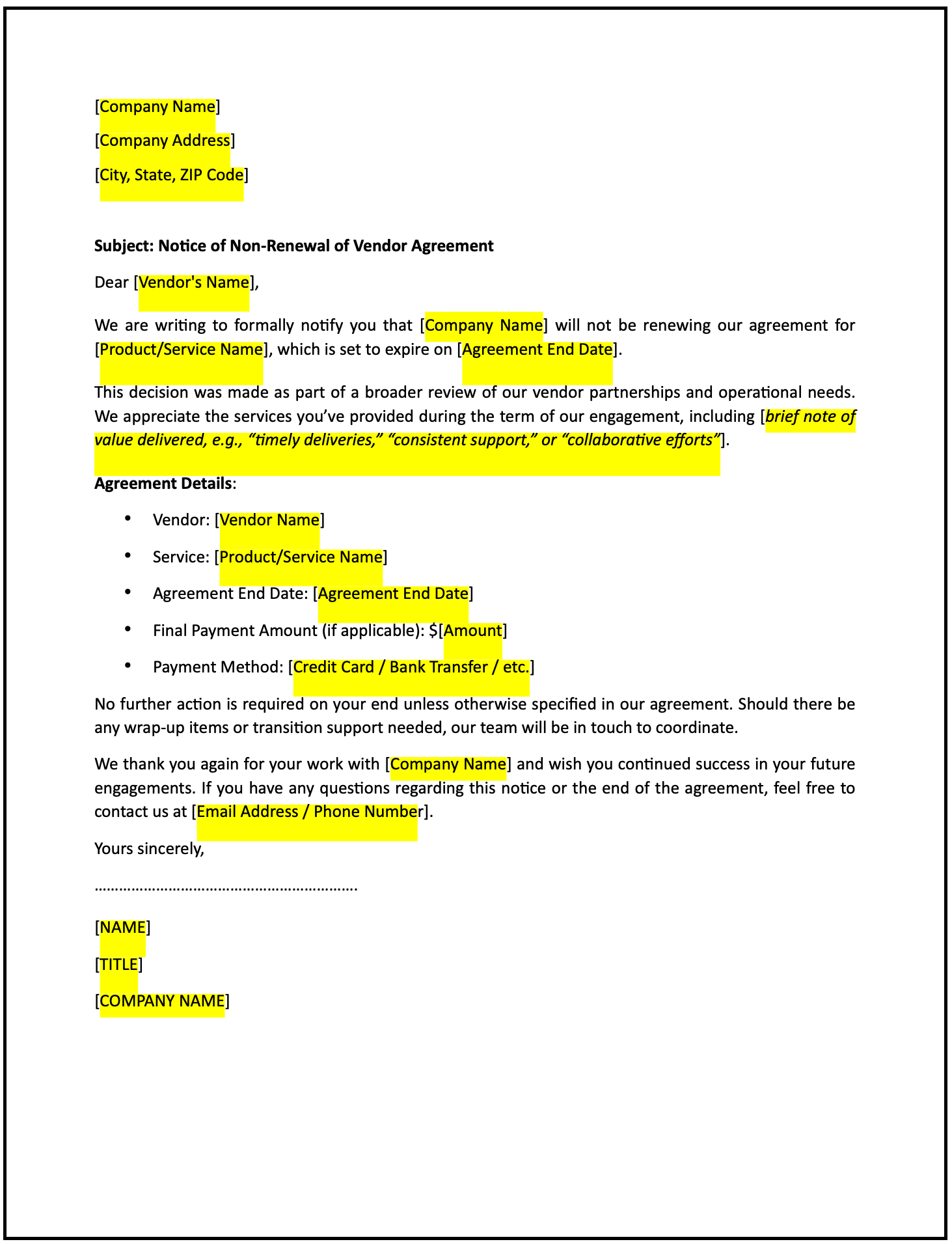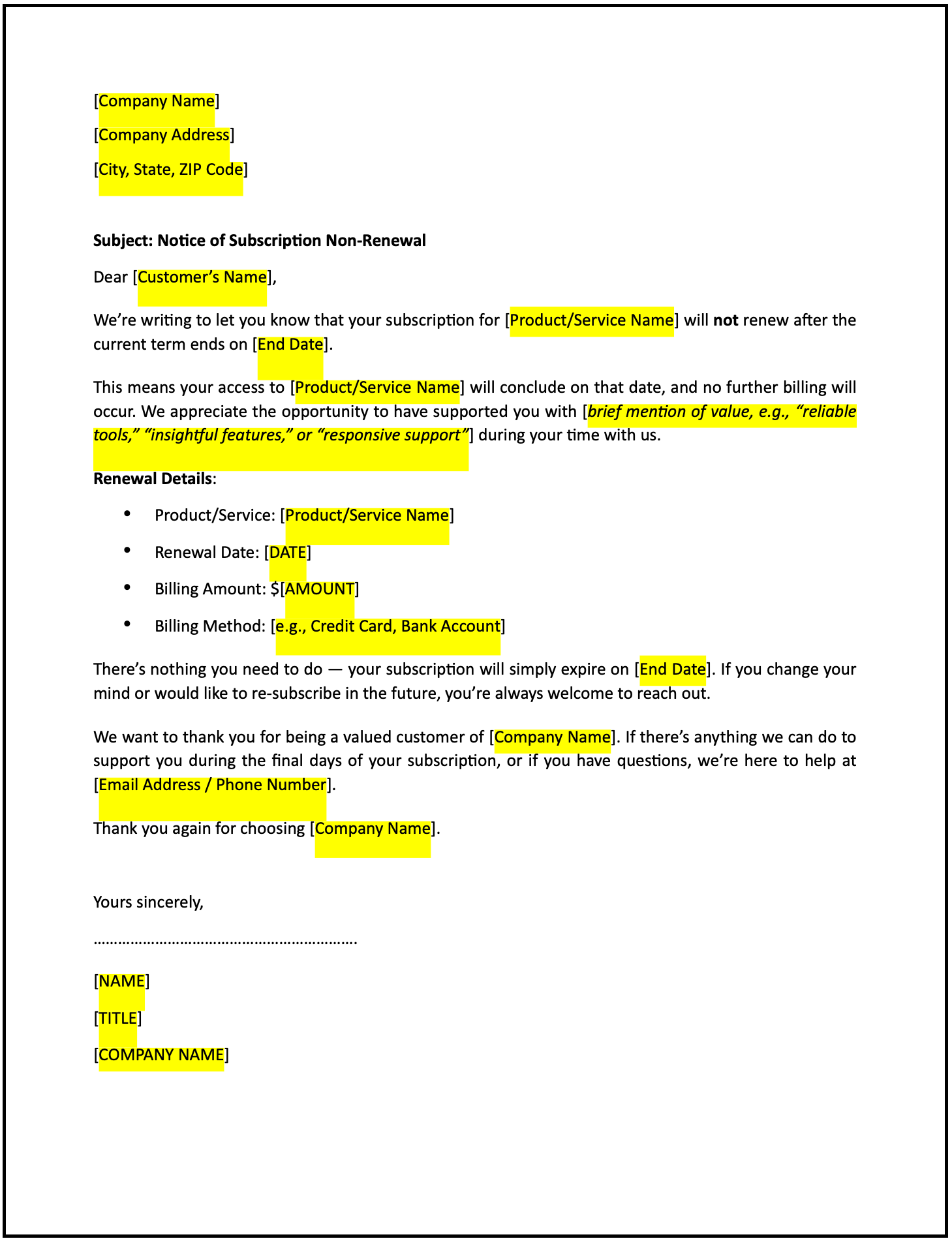Letter of temporary office closures: Free template

Letter of temporary office closures
A notification letter of temporary office closures is a formal communication used to inform employees, customers, or stakeholders about the temporary unavailability of an office or workspace. This letter outlines the reasons for the closure, the expected duration, and alternative arrangements to minimize disruptions while maintaining transparency and professionalism.
How to use this letter of temporary office closures
- Open with an introduction: Address the recipients respectfully and state the purpose of the letter—to announce the temporary closure of an office.
- Provide the reason: Briefly explain the reason for the closure, such as renovations, health and safety concerns, or weather-related issues.
- Specify the closure details: Clearly outline the dates and duration of the closure to ensure clarity.
- Highlight alternative arrangements: Mention any temporary solutions, such as remote work policies, alternative office locations, or online support channels.
- Reassure the recipients: Emphasize that steps are being taken to minimize disruptions and ensure normal operations resume as soon as possible.
- Include instructions: Provide guidance on how employees or customers can address concerns, access resources, or continue services during the closure.
- Maintain a professional tone: Ensure the letter is clear, polite, and focused on fostering understanding.
- Provide contact information: Include details for recipients to reach out with questions or for additional support.
Benefits of using a letter of temporary office closures
This letter ensures a structured and professional way to communicate office closures while maintaining trust and minimizing confusion. Here’s how it helps:
- Promotes transparency: Clearly outlining the reason and duration of the closure builds trust and reduces uncertainty.
- Reflects professionalism: A well-crafted letter demonstrates respect and attentiveness to employees and stakeholders.
- Encourages adaptability: Providing alternative arrangements helps minimize disruptions to operations.
- Supports productivity: Informing recipients in advance ensures smooth transitions during the closure period.
- Strengthens communication: A proactive approach fosters open and effective dialogue between leadership and stakeholders.
Tips for writing an effective letter of temporary office closures
- Be specific: Clearly describe the reason for the closure, the dates involved, and any temporary arrangements.
- Use professional language: Maintain a respectful and informative tone to encourage understanding and cooperation.
- Highlight alternative solutions: Emphasize how operations will continue during the closure, if applicable.
- Provide actionable steps: Include instructions for accessing resources, contacting support, or addressing specific needs.
- Keep it concise: Focus on the key points while ensuring the tone is professional and supportive.
Frequently asked questions (FAQs)
Q: What details should I include in this letter?
A: Include the reason for the closure, the dates and duration, alternative arrangements, and contact information.
Q: Should I personalize the letter?
A: Yes, addressing recipients collectively or individually ensures clarity and attentiveness.
Q: Who typically sends this letter?
A: Office managers, HR representatives, or company leadership typically send this letter.
Q: How formal should this letter be?
A: The tone should be professional yet approachable, focusing on clarity and reassurance.
Q: When should this letter be sent?
A: Send the letter well in advance of the closure to allow recipients sufficient time to prepare.
Q: Can this letter include emergency contact details?
A: Yes, providing emergency contact information ensures support is available during the closure.
Q: Is acknowledgment from recipients required?
A: While not mandatory, encouraging acknowledgment ensures recipients are aware of and prepared for the closure.
This article contains general legal information and does not contain legal advice. Cobrief is not a law firm or a substitute for an attorney or law firm. The law is complex and changes often. For legal advice, please ask a lawyer.


